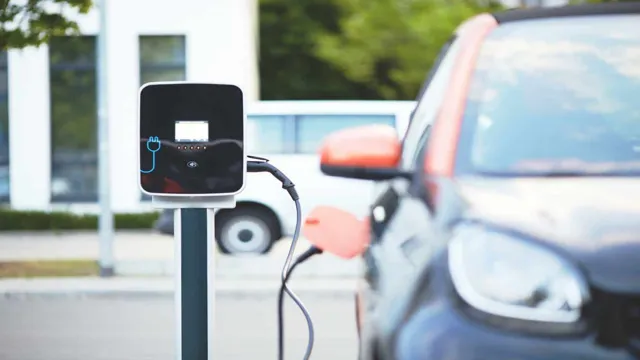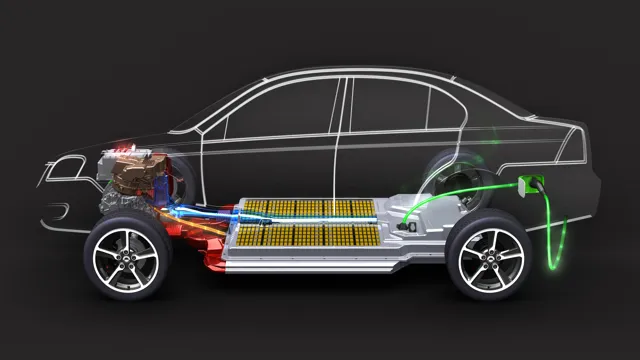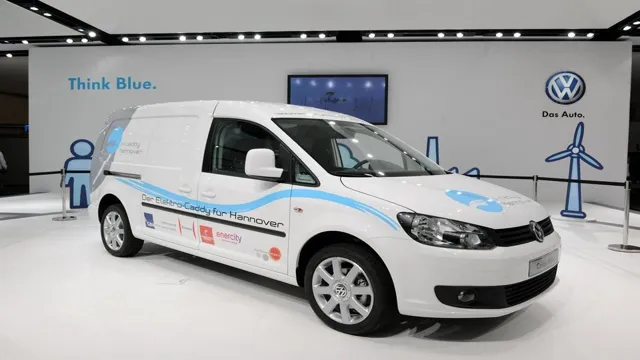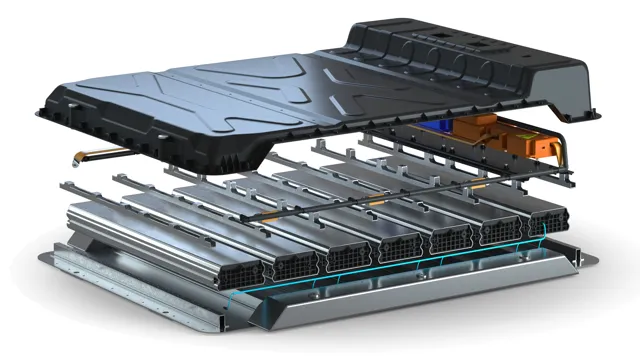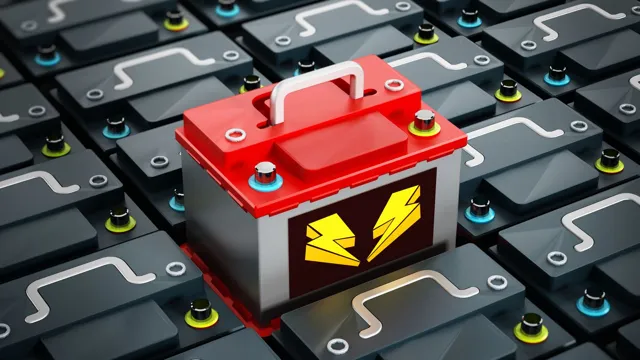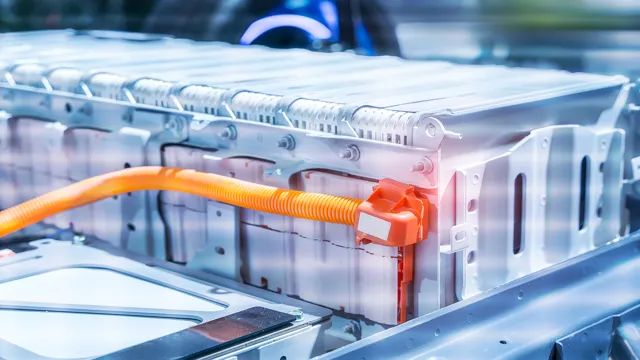Shocking Truth: The Hidden Battery Pollution from Electric Cars
Electric cars are hailed as the future of transportation. They are efficient, eco-friendly, and reduce dependence on fossil fuels. However, one of the major concerns associated with electric cars is the impact of their batteries on the environment.
Electric car batteries contain several toxic and rare earth metals that can cause environmental pollution during production, use, and disposal. But, does this mean that electric car batteries are only adding to the pollution and not mitigating it? Not quite. The fact is that when compared to traditional gas-powered cars, electric cars have significantly lower emissions and contribute less to air pollution.
In fact, electric cars can help reduce pollution levels in cities and aid in achieving carbon neutrality. So, what are the solutions to mitigate the impact of electric car batteries on the environment? Recycling and responsible disposal of used batteries can go a long way in reducing the environmental impact. Additionally, advancements in battery technology and the use of alternative materials in battery production can further reduce the environmental footprint of electric cars.
In conclusion, while electric car batteries do pose environmental concerns, the benefits they offer in terms of reduced pollution, increased efficiency, and decreased reliance on fossil fuels far outweigh the drawbacks. The key is to focus on responsible production, use, and disposal of batteries to ensure a sustainable future for our planet.
Environmental Impact of Electric Cars
One of the environmental concerns surrounding electric cars is the pollution resulting from their batteries. While electric vehicles emit less emissions during operation than traditional vehicles, the production and disposal of their batteries can have negative impacts. The manufacture of batteries requires significant amounts of energy and resources, leading to pollution and greenhouse gas emissions.
Additionally, when these batteries reach the end of their lifespan, they can release toxic chemicals into the environment if not disposed of properly. However, advancements in battery technology and the implementation of proper disposal methods can mitigate these negative environmental impacts. As the demand for electric cars grows, it is important for manufacturers and governments to prioritize sustainability throughout the entire lifecycle of these vehicles.
Battery Pollution: What Is It & How Does It Happen?
Battery pollution is a significant environmental concern associated with electric cars. While these vehicles themselves produce no emissions, the process of manufacturing and disposing of their lithium-ion batteries contributes to pollution. The harmful materials used in battery production, such as lithium and cobalt, are mined in environmentally damaging ways.
Additionally, the disposal of used batteries can contaminate soil and groundwater. However, many carmakers are working to address these issues by implementing more sustainable methods for battery production and developing effective recycling programs. By being mindful of the environmental impact of electric cars, we can work towards a cleaner, more sustainable future while still enjoying the benefits of zero-emissions vehicles.
Lithium Mining: The Dirty Process Behind Electric Car Batteries
Electric cars are often seen as a solution to reduce emissions and combat climate change, but the environmental impact of the manufacturing process for their batteries cannot be ignored. Lithium mining, a necessary step in the production of electric car batteries, involves a dirty and resource-intensive process. Extracting lithium requires large amounts of water and electricity and can result in soil and water contamination, deforestation, and displacement of indigenous communities.
In addition, the production of batteries requires other rare and valuable resources, including cobalt, nickel, and manganese, all of which have their own environmental impacts. While electric cars may offer a cleaner form of transportation in the long term, it is important to consider the environmental consequences of the manufacturing process. As consumers, it is our responsibility to take into account the entire lifecycle of a product, including the resources used and the environmental impact.
Emissions from Battery Manufacturing & Disposal
The environmental impact of electric cars is a complex topic and one that requires careful consideration. While it is true that electric cars produce fewer emissions than traditional gasoline vehicles when they are driven, there are still significant environmental concerns associated with battery manufacturing and disposal. Lithium-ion batteries, which power most electric cars on the market today, are made from materials that must be mined and processed before they can be used.
This process can lead to significant greenhouse gas emissions and other environmental damages, particularly when done on a large scale. Likewise, when these batteries are disposed of at the end of their useful lives, they can pose significant environmental risks. For example, they can leak toxic chemicals into the soil and groundwater.
Overall, while electric cars are undoubtedly cleaner than traditional gasoline vehicles, it is important to recognize the environmental costs associated with their manufacturing and disposal.
Solutions to Address Battery Pollution
Battery pollution from electric cars has become a concern for both manufacturers and users. However, it is worth noting that a lot of research has already been conducted in an attempt to address this issue. One major solution is to recycle batteries instead of disposing of them in landfills.
Battery recycling plants have been set up in many countries, and they are now able to extract valuable minerals from old batteries and return them back into production. Another solution is to use renewable energy sources such as solar or wind to power electric cars, which removes the need for grid-supplied electricity that is not always clean. Lastly, manufacturers have been working to develop new battery technologies, such as solid-state batteries.
These batteries are less prone to overheating and have a longer lifespan than traditional lithium-ion batteries. While these solutions are still in the early stages, they show promising results in the fight against battery pollution.
Recycling & Circular Economy
As the world becomes increasingly reliant on battery-powered devices, the issue of battery pollution has become more pressing. Fortunately, there are solutions available to address this problem. One effective solution is to implement a circular economy approach to battery production and disposal.
In this model, batteries would be designed for reuse, with manufacturers responsible for recycling and refurbishing old batteries to extract valuable metals and materials. Additionally, batteries could be equipped with tracking systems to ensure proper disposal and prevent them from ending up in landfills or waterways. This approach would not only reduce pollution, but also save resources and reduce the need for new battery production.
By adopting a circular economy model for batteries, we can help ensure that our reliance on technology does not come at the cost of our planet’s health.
Alternative Battery Materials & Technologies
Alternative Battery Materials & Technologies As the world continues to move towards cleaner energy sources, the demand for batteries is only going to increase. However, the current crop of batteries, though efficient, isn’t entirely eco-friendly. The lead-acid batteries found in cars and trucks are notorious for their pollution and outright hazardous materials like sulfuric acid.
Thankfully, alternative materials and technologies are being researched to address the issue. Innovations like solid-state batteries that use materials like ceramics or polymer electrolytes instead of liquid electrolytes, thus eliminating the potentially toxic chemicals used in conventional batteries. Tesla is also making progress with more efficient silicon-based batteries that can increase the range and lifetime of an electric vehicle while reducing their overall cost.
The research into more sustainable and less toxic alternatives to traditional battery materials is an exciting development for our society’s future.
Offsetting Carbon Emissions from Electric Cars
As electric cars gain popularity, concerns about battery pollution and carbon emissions arise. While electric cars emit less carbon than traditional gasoline vehicles, the production and disposal of their batteries can have a negative impact on the environment. To address this issue, offsetting carbon emissions is a potential solution.
This process involves investing in projects such as the planting of trees or the use of renewable energy to balance out the carbon emissions produced by electric cars. Companies such as Tesla and BMW have already established their own offsetting programs to ensure their vehicles have a net-zero carbon footprint. By supporting these efforts, electric car owners can not only reduce their impact on the environment but can actively work towards creating a more sustainable future.
Conclusion: The Road Ahead for Sustainable Electric Cars
While electric cars are a promising solution to reduce our carbon footprint and dependence on fossil fuels, we must not forget that batteries also have their own environmental impact. The production and disposal of batteries can contribute to pollution, but the good news is that manufacturers are constantly working to improve their processes and find more sustainable materials. So in the end, perhaps the most important thing we can do is to support these efforts and keep finding better ways to power our vehicles, while keeping a watchful eye on the impact we are having on our planet.
“
FAQs
How do electric car batteries contribute to pollution?
Electric car batteries can contribute to pollution during the manufacturing process, as the production of battery components can generate hazardous waste. Additionally, the disposal of old batteries can also pose environmental risks if not handled properly.
Are there any efforts to mitigate the environmental impact of electric car batteries?
Yes, there are ongoing efforts to address this issue. Some companies are developing more sustainable battery production methods, and there are initiatives in place to encourage the recycling of used batteries.
Are electric cars still better for the environment overall, despite the potential pollution from batteries?
Yes, electric cars are usually still better for the environment overall when compared to traditional gasoline-powered cars. This is because they produce fewer emissions during use, which can help to reduce air pollution and mitigate climate change.
Are there any alternative battery technologies being developed to minimize the environmental impact of electric cars?
Yes, there are several alternative battery technologies being researched and developed, such as solid-state batteries and flow batteries. These technologies could offer improved performance and reduced environmental impact compared to current lithium-ion batteries.
